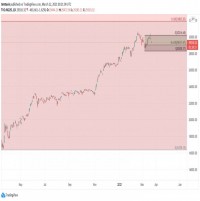|
By: Benedicte Gravrand Allocators should know how to differentiate private from hedge funds, claims Cyril Demaria, author of an educational book on private equity in Switzerland (in French: "Le private equity suisse: acteurs, investissements et performance" (2nd edition, SECA, 198 pages)). He also wrote "Introduction to Private Equity" (English version: Wiley, 2009, 248 pages). This specialist is not just an author; he is also a fund manager for business angels and family offices, he holds a doctorate from the University of St-Gall, and teaches at the Edhec Business School in France. He was interviewed for Opalesque Radio a couple of years ago and talked about an angels fund he managed called Pilot Fish I. Last month, he told Swiss daily Le Temps in an interview that many reputed Swiss companies - such as Sunrise, Orange, Selecta, Geberit, Charles Vogele, Swissport - have been or still are in a private equity fund's portfolio. However, the Swiss market and its evolution are poorly documented, he claims. He tells Le Temps that the reasons for writing this book was to inform on the Swiss private equity market, in French. This second edition (the first edition was published in 2009) is an update, and also features some commentaries from private equity specialists. It is addressed to the Swiss parliament, he says, to students, to business angels, and to entrepreneurs who might be the target of private equity funds. He insists on the difference between private equity and hedge funds. "It's a matter of reputation," he adds, "and besides, we are not in the same category." Also, private equity should not be regulated the same way. For example, the European Union's AIFM Directive forces alternative funds to review part of their portfolio's holdings each quarter, but that is not suitable for private equity. Institutional investors do not like the implied uncertainty of performance objectives, but uncertainty is much more certain, he notes, than previsions that are taken for granted. But the bothersome matter of future performance uncertainty can be countered by actual performance, he adds. As indeed, there can be more reward in private equity than in traditional investments. In the majority of cases, all goes well between buyers and entrepreneurs, he tells Le Temps. But sometimes, it goes very badly, as it did when US group Carlyle took control of a large French producer of corrugated board called Otor. The Carlyle Group's acquisition of Otor SA in 2000 led to several lawsuits over the following years as Otor refused to hand over control. In 2010, DS Smith, an international packaging supplier, and Carlyle entered into exclusive discussions regarding the acquisition of the entire interest controlled by Carlyle in Otor. Closing was expected in Q4-2010 but we heard nothing about it - although it seems Carlyle no longer owns Otor. We more often hear about clashes than about successful operations, Demaria notes. Family-owned businesses could do with an investor when they reach certain stages in their growth where there is a need for a strengthening of competence or for a better structure of internal communication, he explains. Those needs can lead to the letting go of some activities, which are no longer relevant. This letting go can temporarily put the business under pressure. Another way that private equity funds can be useful to those businesses is when their acquisition is an alternative to an estate for the heirs. Demaria further tells Le Temps that investors get better results if they offer stock options to company managers from the start. Nowadays some private equity funds actually reserve part of their stake for employees too, he adds. All for the better. | |
|
This article was published in Opalesque's Private Equity Strategies our monthly research update on the global private equity landscape including all sectors and market caps.
|
Private Equity Strategies
Cyril Demaria on Swiss private equity and his new book – Le Temps |
|





 RSS
RSS










